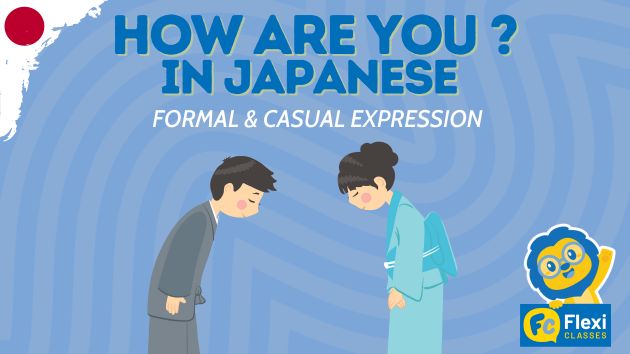Understanding Kudasai Meaning in Japanese
How to Use Kudasai in Japanese: Meaning, Variations and Examples

One of the most common and versatile words when learning Japanese is kudasai ください .
It appears in a variety of contexts, and understanding its nuances in polite requests and everyday interactions is crucial.Basically, kudasai is a polite way to ask for something in Japanese.
In English, kudasai is often translated as please, but this translation does not fully represent the entire usage of the word.
The word kudasai is derived from the verb kudasaru 下さる くださる , which is an honorific meaning to give. A more literal translation would be please give to me.
When you use kudasai, you are asking someone to do or give you something, and you express this with respect and courtesy.
In this article, we will explore in detail the meaning of “kudasai”, its various uses, and how to incorporate it into your Japanese vocabulary.
Kudasai Meaning || Basic Usage
Kudasai Meaning || Knowledge of Notation
Kudasai Meaning || Several Variants and Itadaku
Kudasai Meaning || FAQs
Kudasai Meaning || Basic Usage
The most basic use of kudasai is when making a request. In this context, it is usually following a noun or a verb in the te form.
| NOUN/VERB | WITH KUDASAI |
| 話す はなす hanasu speak | 話してください。 はなしてください hanashite kudasai Please speak |
| 食べる [たべる] taberu eat | 食べてください。 [たべてください。] tabete kudasai Please eat |
| 教える [おしえる] oshieru teach | 教えてください。 おしえてください。 oshiete kudasai Please teach me |
Put it after a noun to require it:
| NOUN | WITH KUDASAI |
|
ビール
bi-ru beer |
ビールください。
bi-ru kudasai Beer, please |
|
ペン
pen pen | ペンください。 pen kudasai Pen, please |
The meaning can be understood without the particle wo を , but adding it gives a more polite impression:
ビールをください。
Beer, pleaseペンをください。
Pen, pleaseWhen it is clear what the object is, such as when items are lined up in a store, simply saying kudasai means I will buy this.
If the name of the item you want is not clear, simply point to it and say, これをください kore wo kudasai, or あれをください are wo kudasai, and the clerk will bring the item to you.
If it is not what you want, say, いいえ、ちがいます iie, chigaimasu.
Kudasai Meaning || Knowledge of Notation
Strictly speaking, the meaning differs when kudasai ください is written only in hiragana, and when 下さい ください is written in kanji and hiragana.
When written only in hiragana, it means a request for the other party to perform an action. On the other hand, when written in kanji and hiragana, it means a request to give something.
For example:
| JAPANESE | ROMAJI | ENGLISH |
| 待ってください。 まってください。 | matte kudasai | Please wait |
| 許してください。 ゆるしてください。 | yurushite kudasai | Please forgive me |
| そのペンをください。 | sono pen wo kudasai | Please give me that pen |
| パンをください。 | pan wo kudasai | Please give me the bread |
The word kashi 下賜 かし is used in connection with the kanji character for 下さい ください .
This is a word used to describe a gift from a person of high status, especially from the emperor. 下 した shita in 下さい さいくだ kudasai means under, below, lower.

In Japan, since the ancient Jomon period, there has been a perception that food is a gift from the heavens. Even after the introduction of rice cultivation in the Yayoi period, this perception remained basically unchanged, and the common belief was that nature’s bounty was something that fell from the heavens.
Therefore, when receiving something from the other person, there is probably a sense that the other person is in a higher position from which the gift is being lowered.

Are the Japanese Always Apologetic? How to Say Sorry in Japanese
Understanding the Variations of Sorry in Japanese || Casual and Formal Expressions As you might’ve guessed, today’s blog post is all about how to say “Sorry” in Japanese. Apology and humility play an important role in Japanese culture. In the…
Kudasai Meaning || Several variants and Itadaku
In anime and movies, kudasai is sometimes said in a different way:
| JAPANESE | ROMAJI |
| くだされ | kudasare |
| くだせえ | kudasee |
| くだしあ | kudasia |
| 頂戴 ちょうだい | choudai |
Another rather coarse way of saying kudasai is kudasee くだせえ . This is a term used by people of low status, and is also used in historical dramas to indicate the low status of the characters.
Internet slang is kudasia くだしあ . This is kudasai, the Romanized form, where sai is misspelled and typed as kudasia because of the keyboard layout. It has become widespread to write kudashia when saying kudasai on the Internet.
Recently, however, with the spread of smartphones, this type of slang with typos has become less common, as the method of inputting Japanese directly in hiragana instead of romaji has become widespread.
Choudai ちょうだい is another form of kudasai. This is a word that can be used both politely and frankly.
頂 ちょう chou means the top, summit, peak. 戴 だい dai means put, load. Thus, this word means to put something important on the top of the head. In this way, we show our respect to the gift and the giver.
When you receive something from your boss or superior, you can say like following:

頂戴いたします。
ちょうだいいたします。choudai itashimasu
I will accept it
すばらしいものを頂戴いたしまして、ありがとうございます。
すばらしいものをちょうだいいたしまして、ありがとうございます。subarashii mono wo choudai itashimashite, arigatou gozaimasu
Thank you for the wonderful gift.
This can be also used in a casual conversation.
To your friends, you can say like:
それちょうだい。
Give it to meChoudai can be used with te form of verbs, and you can use it just like kudasai:
一緒に来てちょうだい。
いっしょにきちょうだい。issho ni kite choudai.
Come with me.
はやく食べてちょうだい。
はやくたべてちょうだい。hayaku tabere choudai.
Eat up fast.
頂 ちょう and 戴 だい ” are also read as itadaku.
頂く いただく and 戴く いただく .
In everyday situations, only 頂く[いただ] is used. In Japanese, you would say いただきます itadakimasu when you start eating, this literally means I am going to receive these meals.
It is possible to say いただきます itadakimasu when receiving something, even in situations other than starting a meal.
The same is true of the humble language いただく. When you want to politely say that you are going to ask someone else to do something for you, you add the verb いただくto the verb.
この仕事をしていただけませんか?
このしごとをしていただけませんか?kono shigoto wo shite itadakemasenka?
Would you be willing to do this job?
来ていただけませんか?
きていただけませんか?kite itadake masenka?
Could you please come?
教えていただきまして、ありがとうございます。
おしえていただきまして、ありがとうございます。oshiete itadakimashite, arigatou gozaimasu.
Thank you very much for telling us about it.

👉 Kudasai and itadaku are both expressions that imply humbling oneself and placing the other person or theirs in a higher position.
Even difficult-to-understand Japanese becomes easier to remember when you understand how it is written in kanji and what it means.
Honorifics are very difficult to learn, but you’re well on your way!
That’s all for this article. Do you know any other situations where you can use kudasai? Share with us here!

Formal and Informal Ways to Ask ‘How Are You?’ in Japanese
Starting the Conversation: How Are You in Japanese When you meet someone in any country, it’s a pretty universal custom to ask ‘How are you?’ There are many expressions in Japanese for inquiring about the current state of affairs and…
Kudasai Meaning || FAQs
What does kudasai mean?
Basically, kudasai is a polite way to ask for something in Japanese.
How do I say in Japanese when I want someone to teach me something?
You say 教えてください [おしえてください] oshiete kudasai.
What does kudasai literally mean?
It literally means words like please put it down. In Japanese, you show respect by humbling yourself and saying it as if you are lower than the other person.
How do I say kudasai casually?
You can use choudai as a casual expression instead of kudasai.
Why are honorifics important in Japanese?
Honorifics are central to Japanese culture, such as social order and respect for others, without which the Japanese cannot even speak.
Want More From LTL?
WANT TO LEARN JAPANESE? Check out our online Japanese courses here.
We offer a 7-day free trial to all new students where you can study 24/7.
What about studying Japanese in Japan instead? We’ve got your back. Our Japanese courses in Tokyo can either be taken in small groups of no more than 5 students or individually for a more tailored experience.
We even offer incredible homestay experiences in Tokyo as well.
Come and be a part of this amazing community.










